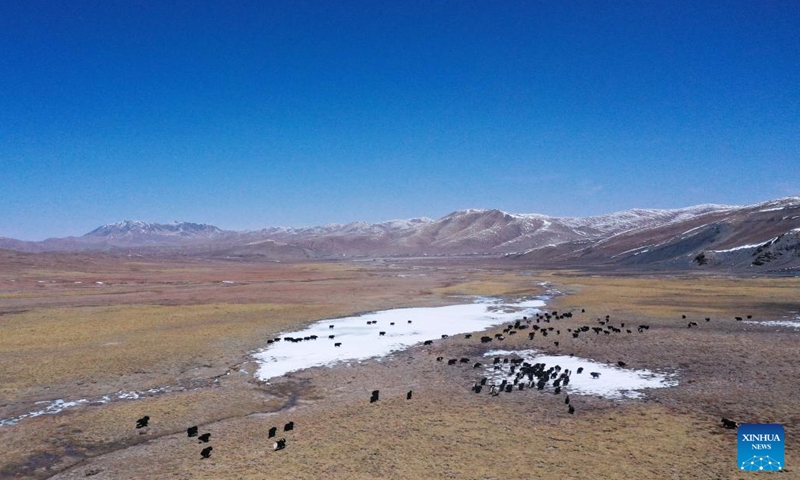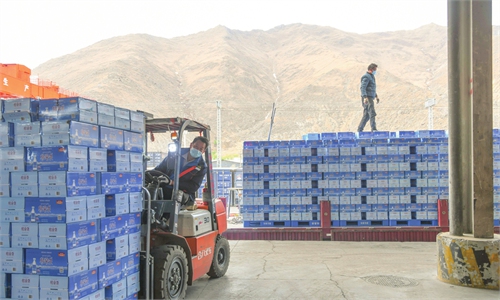Qinghai to continue strengthening conservation of water resources, accelerate restoration of local ecology

Aerial photo shows yaks grazing in Qumalai County of Yushu Tibetan Autonomous Prefecture in northwest China's Qinghai Province, April 20, 2022. Animal husbandry has always been a pillar industry of Qumalai County, which is located in the Sanjiangyuan National Park. In recent years, the local government has built an eco-friendly industrial system, which not only promotes rural revitalization, but also effectively protects the ecological environment.(Photo: Xinhua)
Northwest China's Qinghai Province has vowed to strengthen utilization and conservation of its water resources, in a bid to accelerate the restoration of the water ecology.
The provincial government said that it will promote deep water conservation and water quality control in the Yellow River Basin, and put water resource conservation and protection within the province's annual targeted responsibility assessment system, according to cnr.cn on Monday.
Dubbed "the water tower of China," Qinghai is home to the Sanjiangyuan area, where three major Chinese rivers -- the Yangtze, the Yellow and the Lancang -- originate.
The province transports more than 60 billion cubic meters of water resource to downstream areas every year, and it is an important supply of freshwater resources in China.
Over the years, Qinghai has shouldered its responsibility of ecological protection and has also pioneered many green development programs.
In the past year, a welfare project started by Truliva and the China Environment Protection Foundation, has helped provide training to nearly 2,000 ecological personnel, and it has patrolled more than 160 square kilometers of water sources in the region.
The company has vowed to invest more to help protect the environment and improve water quality in the Sanjiangyuan region.
Truliva is a Chinese water purification equipment retailer acquired by Anglo-Dutch consumer goods company Unilever in 2014.
The Chinese government is likely to set up a new batch of national parks this year on the Qinghai-Tibet Plateau, and in the basins of the Yangtze River and the Yellow River, according to Xinhua News Agency.
Through years of efforts, China has effectively protected 90 percent of typical terrestrial ecosystems, and increased the wild populations of more than 300 rare and endangered wild animals and plants, said the National Forestry and Grassland Administration.
Global Times



